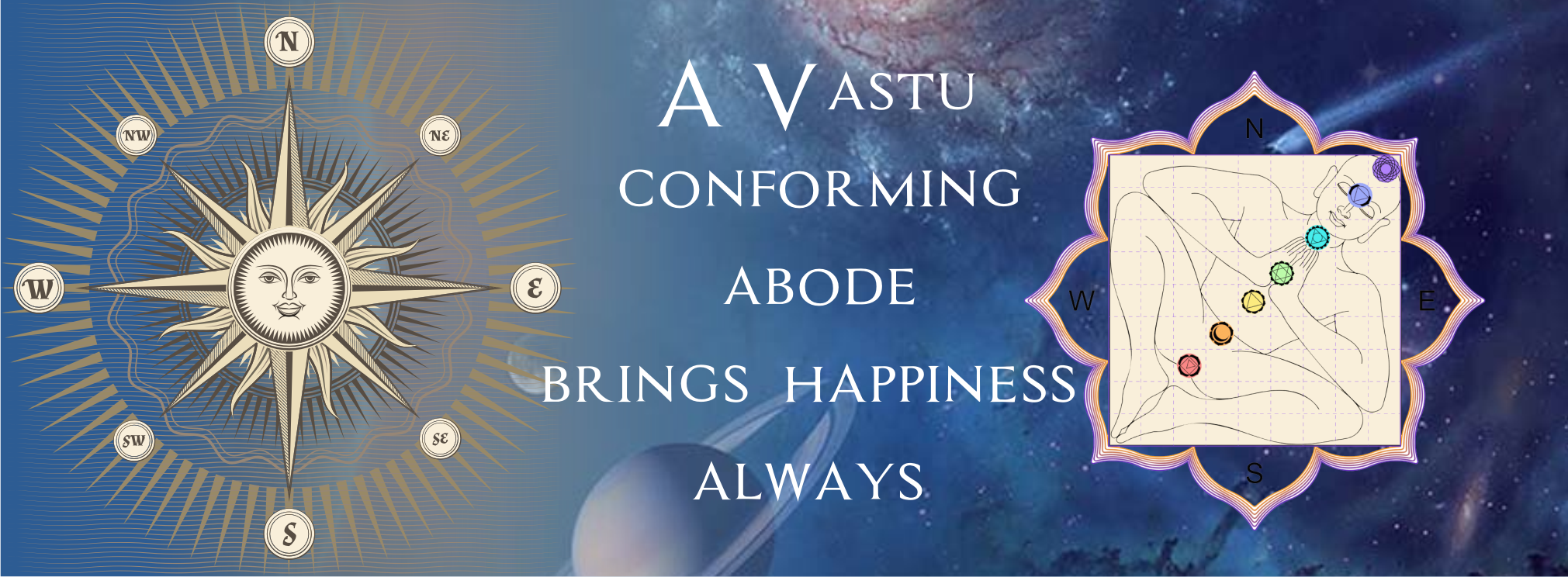
VASTU is derived from the word VASATI which literally means a place of dwelling. Vastu is basically a science of structures irrespective of the use to which the structure is put to. Hence houses, shops, industries, hospitals and schools all come under the purview of Vastu. Knowledge of Vastu is also found in Vedas and other scriptures. The great Indian sage Vishwakarma is mainly credited for revealing this knowledge through his Divya Dristi (divine sight). Vastu teaches how to ensure a happy life avoiding untoward happenings and unpleasant surprises.
Vastu is based on five elements of Fire, Water, Air, Earth and Aakash or Ether. These five elements affect all human beings alike irrespective of caste, creed, religion etc. Each of these five elements has a force with a characteristic property. Take the example of ‘Fire’. If a baby touches it, it will get burnt. If an elderly person touches it, he too will meet the same fate. Fire will never distinguish whether one is an Indian, an American or to which religion one belongs to. At the same time fire can be used constructively as a form of energy, say for cooking. Again, this benefit too can be availed by all individuals alike. Hence, VASTU IS EQUALLY APPLICABLE TO ALL INHABITANTS OF THIS EARTH. And essence of Vastu lies in harnessing the strength of these five elements harmoniously.